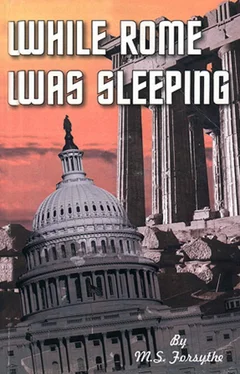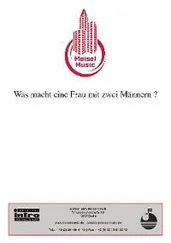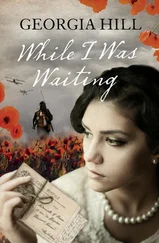* * *
6:00 AM Thursday
Andrew was dialing the secure telephone number of Neil Klein in Washington D.C. It dawned on him he had not called Ben last night; oh well, he would do it after talking with Klein. He had the scripted conversation on his desk facing him. The phone rang once, twice…
“Klein,” the voice that answered was deep and cultured.
“This is Andrew Kincaid in Seattle, Mr. Klein. Your Aunt Martha has arrived in Seattle, but she will be delayed due to a medical condition. Her luggage is with me, but she asked that it be sent home to you. I need a correct shipping address.”
“Thank you for calling, Andrew. Aunt Martha told me that you or Father Lee might be contacting me. How bad is her condition?” Neil Klein adjusted his wire rimmed glasses to peer at a document by his elbow. The polished dark wood desk was clear of everything but the telephone, a picture of an attractive woman with Neil and a few papers neatly stacked at his fingertips. The office was rich in polished woods; a series of bookcases lined one wall. Windows behind the desk looked out across the campus of Georgetown University.
Andrew cleared his throat and continued, “Your Aunt’s condition is grave, but she was most emphatic about her luggage being sent home to you.”
Neil responded, “If Aunt Martha is that ill I believe I should come to Seattle. I will leave as soon as possible; would you please make a hotel reservation for me tomorrow under the name ‘Evan Scott’. I will call you when I arrive.” Without waiting for Andrew to respond, Neil continued, “I will get word to you at the Times or through KGM. Hold on to Martha’s bags until I get there.”
Andrew quickly interjected, “Of course I’ll hold on to your aunt’s luggage, but as far as a hotel is concerned; let me make a reservation for you at the Washington Athletic Club, it’s not as public as a hotel. I will register you there as my guest.”
Neil responded, “Excellent. Wait for my call. Remember, ‘Evan Scott’. See you soon.”
Andrew gave a mock salute to the telephone as he hung up. “Yes sir! Anything else, sir?” he inquired of the mute instrument. He wasn’t used to the cut and dried treatment, but he realized he was playing on a whole new field. He shrugged, gave Father Ben a quick call at home, grabbed his coat and headed north for Charlene Thayer’s house. He wasn’t sure how, but he was certain that he was going to try to help her.
* * *
Following his talk with Andrew Kincaid, Neil sat back in his chair. So George didn’t make it. His dark blue eyes gazed intently out the window, but his thoughts were far away. It was a personal loss and he felt empty and deeply saddened by the call.
He thought back to the first time he saw George Kelshaw. It was 1961 and Neil Klein had just joined the State Department in the Office of Asian Pacific Affairs and was attending one of the orientation classes for new recruits. This class was conducted by a handsome and impressive 28 year old professor of linguistics from Georgetown University whose name was George Kelshaw.
Along with the class he was awed by Kelshaw’s knowledge of Southeast Asia, its people and languages, and the ease with which he presented his subject. He spoke authoritatively, using a small tobacco pipe plucked from the breast pocket of his coat to tap locations and trace distances on the wall maps behind him; at the same time describing picturesque scenes of river deltas, plains and mountains with lush vegetation and valley floors filled with blood red poppy fields. He spoke as a man in love with his subject.
Neil worked as an adjunct professor in political science at Georgetown and had been invited to attend an afternoon faculty tea; he was delighted to come face to face with the animated linguistics professor again. This time he would have an opportunity to speak to and learn more about him. It was on this occasion that their friendship began.
Upon entering the room Neil spotted a dark haired, well built man surrounded by a group of faculty wives, laughing and chatting. He was casually leaning against a grand piano with his back toward the doorway; then turning slightly Neil saw that it was Kelshaw. It was obvious that women were attracted to his dark good looks.
Neil noted George’s attire was typically professorial; tweed jacket with leather patches on the sleeves, the pipe sticking out of his breast pocket while some other male faculty members wore more formal dark suits. George, completely oblivious to fashion statements, seemed to be enjoying every minute of conversation, his dark eyes twinkling in amusement as he laughed or smiled.
When he saw Neil he gracefully broke away from the women and made his way across the room. He threaded his way with catlike ease past other guests holding plates and teacups and extending his hand introduced himself saying, “Hello there, I’m George Kelshaw, I remember you—you were in the orientation class at State three or four weeks ago. How is it going over there?”
“Neil Klein,” he responded, grasping Kelshaw’s hand, “And fine, thanks for asking. I’m amazed that you would remember me from all those faces.”
As time passed Neil would find memory to be only one of many outstanding characteristics of George Kelshaw.
“What brings you to this little soiree, surely not tea?” George asked pleasantly.
“No, I do my bit as an adjunct in the Science Department; although I don’t know if I’ll be able to juggle both jobs for very long. I am very glad to see you here; I have wanted to meet you and tell you how much I enjoyed your lecture on Southeast Asia”
During their conversation Neil learned that George’s parents were both physicians, had been medical missionaries and had lived and traveled throughout Indochina for years. They had come back to the United States from Laos in 1943 barely ahead of Japanese internment. George was only ten years old, but indelible memories connected with crisscrossing terrain and tribal village after tribal village remained with him.
Born in a small Laotian village, it seemed George could close his eyes and see the peoples and hear the sounds and sense the smells. He captured the languages so easily that even his parents were amazed at his fluency and encouraged him to continue to broaden vocabularies. His parents helped keep Southeast Asia alive for George by recalling events and places their medical service had taken them. These memories and knowledge would save his life many times in later years.
Following the faculty tea, Neil and George often met for lunch or dinner as their schedules would allow. Each meeting was an educational experience for Neil; he found George to be a brilliant man and good friend. He learned that George had earned his PhD at Princeton and had been teaching at Georgetown for two years.
One evening George had invited Neil to have dinner with him; there was someone that he wanted Neil to meet. Neil was certain that George had finally found a special person and wanted Neil’s stamp of approval. At dinner George introduced Neil to Myra, his younger sister.
Like George she had dark hair, large gray eyes and a lovely smile that lit up her face. Well dressed, perfectly groomed, poised and beautiful was Myra Kelshaw; and Neil was smitten. That evening Neil and Myra found they had several things in common. She was two years younger than Neil, had attended William and Mary University and had majored in Political Science and like her brother was fluent in several languages as well.
Through many evenings following their initial meeting, they found they shared a liking for the same kind of music, books and generally the same outlook on life. They were married several months later and Myra became Neil’s chief confidante along with her brother, but she chose to remain quietly in the background. It was not generally known that Myra and George were brother and sister.
Читать дальше












